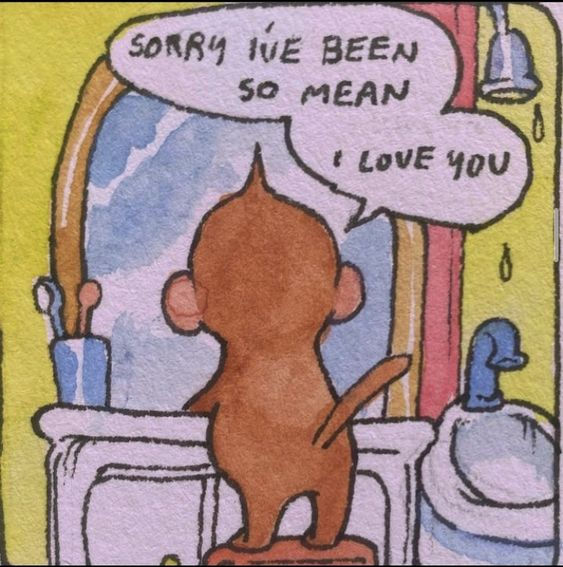September is suicide prevention month
- lxrynwxtring
- Sep 12, 2022
- 4 min read
9/12/22

September is suicide prevention month.
the goal of this month is to shift perception of suicide, bring awareness, and spread hope and share vital information to those affected by and considering suicide.
some quick and easy resources from NAMI, the National Alliance on Mental Health:
if you or someone you know is experiencing a mental health crisis, call or text 988
if you are uncomfortable talking on the phone, you can chat with someone at 988ifeline.org
text NAMI to 741-741 to to be connected to a free, trained crisis counselor on the Crisis Text Line
NAMI also gives an infographic titled "it's okay to talk about suicide" that shares some really helpful information that I wanted to share with my cherubs.
SUICIDE IS NOT THE ANSWER
thoughts of suicide can be frightening. but reaching out and talking about it can help stop these devastating outcomes from happening.
here's some of the statistics:
suicide is a leading cause of death in the US 2nd among ages 10-14
3rd among ages 15-24
and 12th overall
among those who die by suicide: 46% have a diagnosed mental health condition
90% have symptoms of a mental health condition
79% of people who die from suicide are male
LGBTQ+ individuals are 4 times as likely to die by suicide
transgender individuals are 9 times as likely to die by suicide
knowing the warning signs are important. suicidal thoughts aren't just "I want to die." they can also appear like:
"I need a break from reliving trauma"
"there is no future I want to live in"
"no one cares if I'm alive"
"I feel trapped and need a way out"
"I need an escape from this cycle of negative thoughts"
"life is pointless now"
"sleep doesn't give me the relief I need from my suffering"
these were provided from @realdepressionproject on instagram
and a lot of times when the suicidal thoughts and questioning are just beginning, it can be very confusing to the individual. you try so many things to feel better about your situation and nothing helps. you continue suffering without any letting up and eventually you become burn out and your only suggestion of fixing it is suicide.
when you're feeling hopeless, it can be hard to identify what we're truly going through. I found a helpful little post on instagram from @mentalhealthpathways and @fittingrightin that I think might help:
5 reasons why you can't identify how you feel:
your feelings weren't validated growing up
when we grow up in a family where our feelings are continuously invalidated, we grow up believing that how we feel isn't right, that there is something wrong with us, and that we can't trust our feelings
2. you weren't allowed to show all your feelings
growing up, I was allowed to feel angry, but I wasn't allowed to feel hurt. I understood that feeling hurt was weak and that I needed to grow a thicker skin. I never learned to express feeling hurt and therefore learned to replace feeling hurt with feeling angry
3. you were mocked for showing your feelings
being made fun of for expressing your feelings is painful; it makes us feel alone and misunderstood. when we learn that it's not safe to express our feelings we learn to ignore them and shove them down
4. you had to manage your parent's emotions
when we grow up having to monitor our parent's moods and feelings, we learn that it's safer to focus on how others feel and ignore how we feel
5. you feel like you didn't belong
we become desperate for human connection when we feel like we don't belong anywhere. to gain a sense of belonging, we change our personality and hide away the parts of ourselves we deem "undesirable." this often means we don't express our genuine feelings and we become disconnected
the National Suicide Hotline has recently revamped its brand to make connection between individuals and how they receive help. they changed their number to a shorter, easy version that people are more likely to remember, 988.
this line is available for calls and texts and is accessible 24/7. this number will put you into contact with a professional to either lead you personally or someone you are with through the steps to de-escalate your/their situation.
the 988 Suicide & Crisis Lifeline created a hashtag for suicide prevention month and beyond to show how to support those in need. #BeThe1To is motivation to help those struggling. Be the one to be there for them and offer them help through these steps:
#BeThe1To Ask
Research shows people who are having thoughts of suicide feel relief when someone asks after them in a caring way. Findings suggest acknowledging and talking about suicide may reduce rather than increase suicidal ideation.
#BeThe1To Be there
Individuals are more likely to feel less depressed, less suicidal, less overwhelmed, and more hopeful by after speaking to someone who listens without judgment.
#BeThe1To Keep them safe
A number of studies have indicated that when lethal means are made less available or less deadly, suicide rates by that method decline, and frequently suicide rates overall decline.
#BeThe1To Help them stay connected
Studies indicate that helping someone at risk create a network of resources and individuals for support and safety can help them take positive action and reduce feelings of hopelessness.
#BeThe1To Follow up
Studies have also shown that brief, low cost intervention and supportive, ongoing contact may be an important part of suicide prevention, especially for individuals after they have been discharged from hospitals or care services.
(list provided from https://988lifeline.org/promote-national-suicide-prevention-month/)
I hope that this helps you guys or you are able to share it with someone that might benefit from it.
reach out to someone you think might be struggling and make sure that they're okay. you might be the only one that does.
remember, you deserve to be here.
xx Loryn



Comments